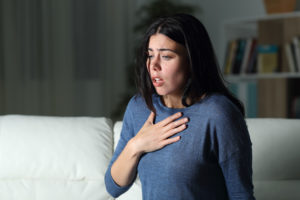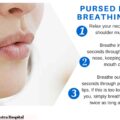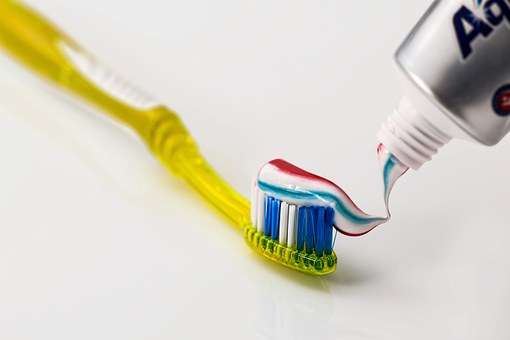Orthopnea is the sensation of breathlessness in the recumbent position, relieved by sitting or standing. Other times, a person might experience paroxysmal nocturnal dyspnea—or waking up suddenly feeling short of breath.
While the symptoms may vary, people with shortness of breath can feel as though they’re being smothered, are unable to take in enough air, have chest tightness, and are uncomfortable when breathing.
Orthopnea and paroxysmal nocturnal dyspnea may prevent you from sleeping properly, impairing your overall health. Our article looks into what may be causing your shortness of breath when lying down. Even if it isn’t a medical emergency, if you’re having shortness of breath regularly, it’s a good idea to speak with your doctor.
According to Amerisleep, here are the common causes of shortness of breath when lying down:
Sleep Apnea: Sleep apnea is one of the most common reasons people have a shortness of breath while lying down. Often confused with mere snoring, obstructive sleep apnea (OSA) causes shallow breaths or pauses in breathing while asleep. The muscles in your throat relax and obstruct your airways, especially when lying on your back.
Sleep expert Dr. Nayantara Santhi says, “One of the most common symptoms of OSA is excessive daytime sleepiness. Why does this happen? OSA involves a decrease or complete halt in airflow, resulting in abrupt drop in blood oxygen saturation. The brain responds to this by causing a brief arousal from sleep that restores normal breathing. Because this can occur hundreds of times in a night, sleep gets fragmented and leads to excessive sleepiness during the day.”
People with sleep apnea might experience snoring, difficulty staying asleep, waking up with a dry mouth or sore throat, and daytime fatigue. Simple nasal decongestants may be enough to resolve sleep apnea, though some people’s symptoms might respond better to breathing devices such as a mouthpiece or a continuous positive airway pressure (CPAP) machine.
Heart Failure: Congestive heart failure often causes difficulty breathing when lying down. With this condition, the heart is unable to pump blood efficiently and relax like normal. Heart failure is generally caused by other health conditions and diseases—including high blood pressure, heart attack, or heart defects.
Heart failure is unpredictable and worsens with time. The disease causes shortness of breath, fatigue, fluid build-up in feet, legs, and abdomen, coughing, and loss of appetite.
Heart failure is a very serious condition and can become fatal, however, living with the condition is possible. There are effective medications and surgeries used to prolong your lifespan or resolve any underlying causes.
Obesity: If you carry excess weight, you might have difficulty breathing normally. When lying down, your abdomen and chest might be compressed and are unable to expand fully. While obesity can be caused by lifestyle choices, certain diseases, medications, and socioeconomic and class issues are linked to obesity as well.
Obesity is commonly linked to other health conditions, such as hypertension, high blood pressure, diabetes, and certain cancers. Losing weight by following a healthy diet and exercise regime can relieve symptoms, but always speak with your doctor to discuss a weight loss plan.
Panic Disorder: Panic disorder is a type of anxiety where a person experiences anxiety or panic attacks, feeling a loss of control, extreme fear, and detachment. Panic attacks are sudden and can last several minutes, causing a person to feel short of breath or as though they are unable to breathe normally. Along with the psychological symptoms, a person may experience sweating, trembling, choking, lightheadedness, tingling. If you have a panic disorder, seek counseling, cognitive behavioral therapy, or psychotherapy.
Chronic Obstructive Pulmonary Disease (COPD): Chronic obstructive pulmonary disease (COPD) is a group of lung diseases, such as emphysema or chronic bronchitis, and is commonly caused by poor air quality. In a patient with COPD, the lungs’ air sacs are damaged and the breathing tubes are narrowed, making it difficult to breathe properly.
Without treatment, COPD worsens over time. Treatment won’t reverse lung damage, but inhalers, surgery, and rehabilitation can improve symptoms. Symptoms of COPD include chronic coughing or wheezing, shortness of breath when completing regular activities, frequent respiratory infections, and fatigue.
Pregnancy: When pregnant, the growing uterus presses down against the organs, particularly the diaphragm and lungs, decreasing lung capacity. Also, the body releases a hormone called progesterone, triggering the brain to take faster breaths. As pregnancy continues, the body needs to pump more blood to accommodate the growing fetus.
Feeling breathless while pregnant is completely normal and typically passes after birth. Along with shortness of breath, pregnant women may have chest pain, heart palpitations, and fatigue.
Respiratory Infections: Respiratory infections, such as the common cold, mild flu, or sinus infections, are a common cause for shortness of breath. They only last between 3 to 14 days, so difficulty breathing should pass with the sickness itself. There are two types of respiratory infections: an upper infection and a lower infection. An upper respiratory infection starts at the sinuses and ends at the vocal cords, while the lower infection starts at the vocal cords and ends at the lungs.
While the symptoms vary based on if you have an upper or lower respiratory infection, you might suffer from a sore throat, runny nose, headaches, sneezing, and achiness.
FAQs
Can dehydration cause trouble breathing?
Yes, without proper fluids, the body is unable to provide cells with enough energy. Water moistens the body’s bronchial tubes, lungs, and nasal passages. It also thins mucus and prevents coughing episodes. Drink at least 3.7 liters (125 ounces) of water if you’re a male and 2.7 liters (91 ounces) of water if you’re a female every day to stay properly hydrated.
When should I be concerned about my shortness of breath?
Signs of a medical emergency include:
- Severe shortness of breath (an inability to talk)
- Allergic reaction
- Chest pain, shooting arm pain, profuse sweating (heart attack)
- Weak pulse
- Dizziness
- Fever
- Rapid breathing or heart rate
If you are experiencing any of these symptoms, seek immediate medical attention.
How should I sleep to avoid shortness of breath?
Consider sleeping at an incline—with a wedge pillow or adjustable bed frame—to improve circulation and avoid breathlessness. You might also add a pillow under your knees to help your body relax and provide extra support to your back and spine.
Another position to try is laying on your side with a pillow between your knees. This way, your tongue won’t rest in the back of your throat and block your airways.
You might also try wearing nasal strips and using a saline spray or nasal irrigation system to clear your sinuses before bed. For individuals with sleep apnea, using a continuous positive airway pressure (CPAP) machine can relieve symptoms.
Does lack of oxygen make you sleepy?
Yes, a lack of oxygen causes lethargy because without oxygen, your body is unable to function normally. A low blood oxygen level is anything below 60 millimeters of mercury (mm Hg), while a normal blood oxygen level is between 75 and 100.
How do I relieve my shortness of breath?
If your shortness of breath is not severe, you can practice controlled breathing techniques such as pursed-lip and diaphragmatic breathing to improve your symptoms. You can also leave a fan on in your room as it may relieve the breathless feeling.
When suffering from obstructive sleep apnea, your doctor might recommend using a CPAP or BiPAP (Bilevel Positive Airway Pressure) machine to relieve shortness of breath while sleeping.
Conclusion
Orthopnea is highly uncomfortable, can ruin sleep, and is unsafe in certain situations. Even if your shortness of breath isn’t life-threatening, always contact your doctor if you have an unexplained difficulty breathing when lying down. The causes and severity differ from case-to-case, so it’s important to receive proper diagnosis and treatment options.






